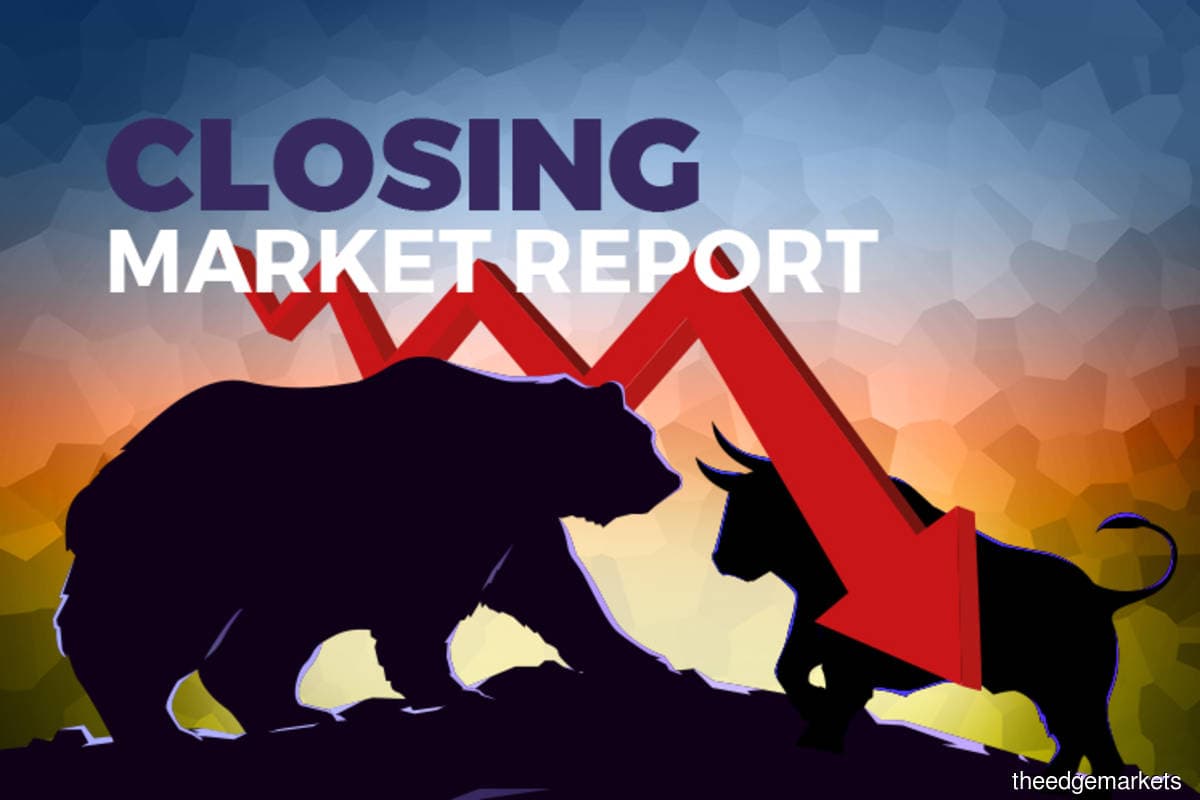
KUALA LUMPUR (Oct 12): The FBM KLCI closed down 11.92 points or 0.78% at 1,518.43 today, after the Malaysian Government announced its decision to implement the conditional movement control order (CMCO) in Selangor, Kuala Lumpur, Putrajaya and Sabah to curb the spread of the Covid-19 pandemic and as world markets took cue from lower crude oil prices.
News reports, quoting Senior Minister (Security Cluster) Datuk Seri Ismail Sabri Yaakob, reported today that the government has agreed to enforce the CMCO in Selangor, Kuala Lumpur and Putrajaya from 12:01am on (Wednesday) Oct 14 to Oct 27, 2020. "The government has (also) agreed to implement the CMCO throughout Sabah effective from 12.01am on Oct 13 until Oct 26,” Bernama reported.
Across Bursa Malaysia at 5pm today, 5.98 billion securities were traded for RM3.82 billion. There were 573 decliners and 498 gainers, as investors also closely watch Malaysia’s political developments after opposition leader and PKR president Datuk Seri Anwar Ibrahim claimed last Thursday that he was granted an audience with Yang di-Pertuan Agong Al-Sultan Abdullah Ri'ayatuddin Al-Mustafa Billah Shah tomorrow.
"In the meeting, I will present documentation of the strong and convincing majority of MPs (Members of Parliament), as I mentioned earlier," Anwar claimed via Twitter last Thursday.
On the KLCI today, TA Securities Holdings Bhd analysts wrote in a note today that "key domestic political developments need to unravel this week for a confirmation on further upward recovery ahead".
Maybank Investment Bank Bhd remisier Jeffry Aziz told theedgemarkets.com that the planned implementation of the CMCO in certain parts of the country and domestic political uncertainties following Anwar’s royal audience claim "weighed on investor sentiment".
From an investment viewpoint, the planned CMCO across Selangor, Kuala Lumpur, Putrajaya and Sabah raises concern on Malaysia's economic growth, which is expected to affect trading sentiment across asset classes including currency, commodity, bond and stock markets.
A crucial example is how global restricted movement policies to curb the Covid-19 pandemic generate concerns on the demand outlook for crude oil as the pandemic results in less travel among the world population.
Crude oil markets also contend with supply issues. It was reported that oil prices fell on Monday as force majeure at Libya's largest oilfield was lifted, a Norwegian strike affecting production ended and US producers began restoring output after Hurricane Delta.
It was reported that Brent crude was down 41 cents to US$42.44 a barrel by 0650 GMT and US West Texas Intermediate was at US$40.18, down 42 cents.
"Prices were also pressured by a jump in new Covid-19 cases that have raised the spectre of more lockdowns. Infections are at record levels in the US Midwest and in Britain Prime Minister Boris Johnson is expected to announce new measures on Monday, while Italy is preparing fresh nationwide restrictions,” Reuters reported.
At Bursa today, the current crude oil price sentiment did not appear to bode well for oil and gas related shares.
The bourse’s Energy Index, which tracks shares of oil and gas related companies, closed down 9.86 points or 1.37% at 711.69.